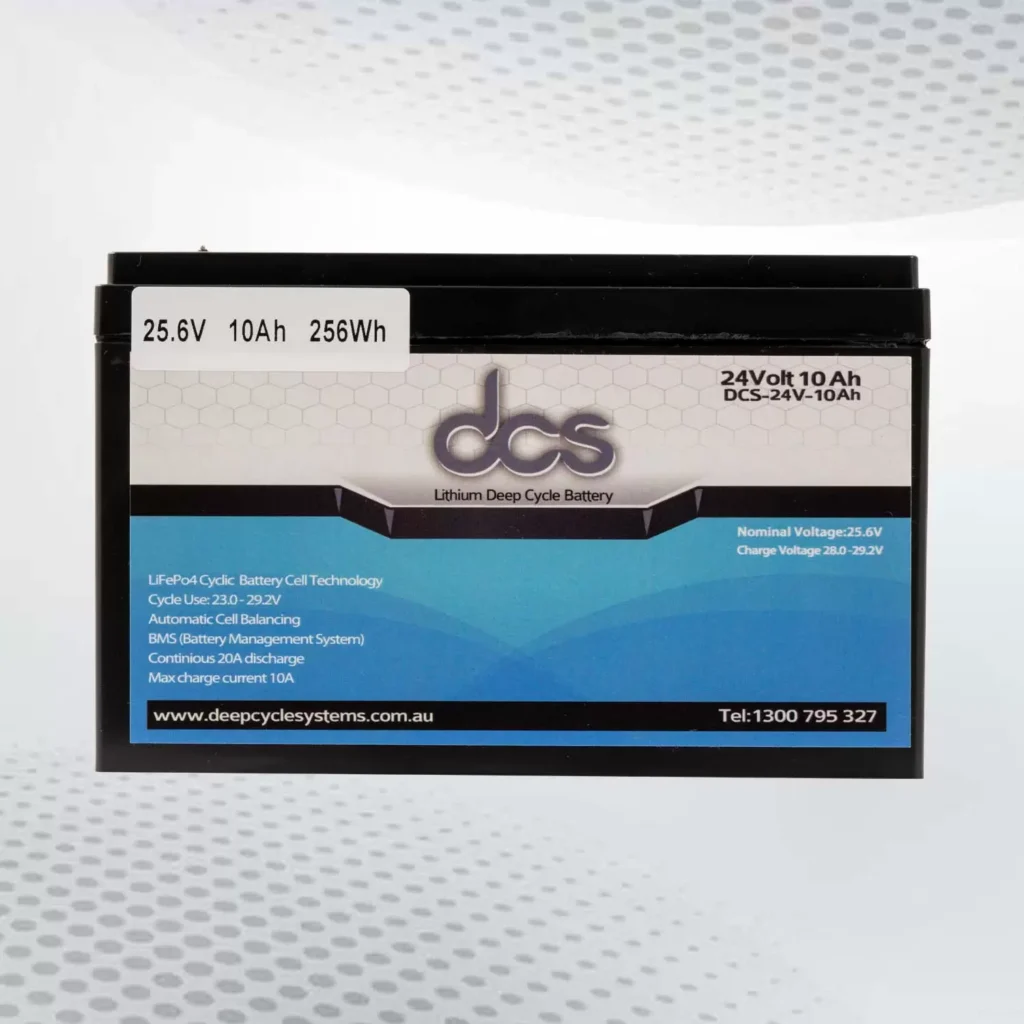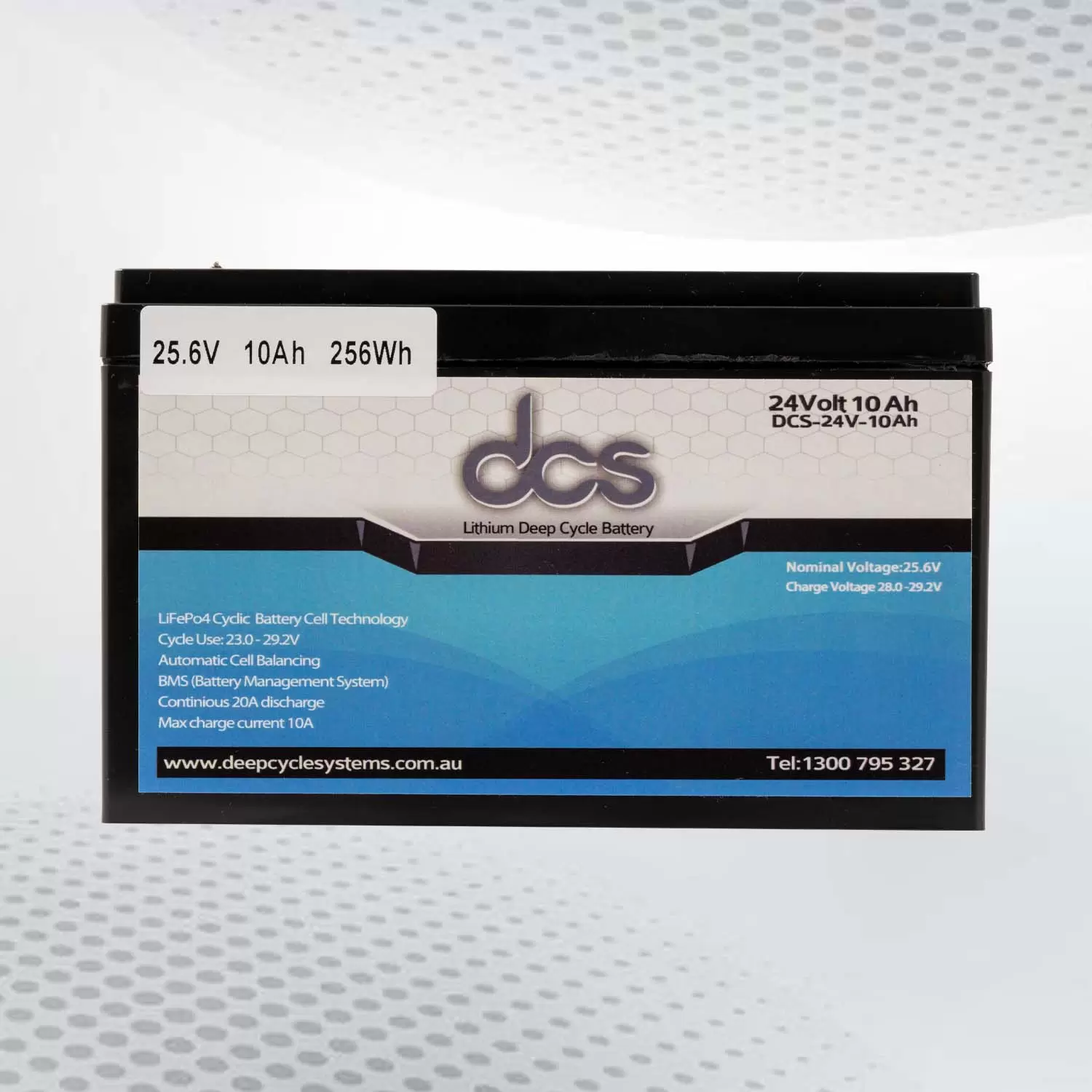In an era where technology continually reshapes our lives, the quest for more efficient, durable, and environmentally friendly power sources has led to significant advancements in battery technology. At the forefront of this revolution stands the 24-volt lithium battery, a energy powerhouse that promises to transform a wide array of industries and consumer products. This blog post delves into the characteristics that make the 24v Li battery a game-changer, exploring its reliability, environmental impact, versatility, cost-effectiveness, and future potential.
Unveiling the Basics: What Makes the 24-Volt Lithium Battery Unique?
The essence of the 24-volt lithium battery’s distinction lies in its operational voltage and the utilization of lithium – a lightweight, highly reactive element – for energy storage. This combination offers a leap in battery technology, propelling it beyond traditional options. The pivotal advantage of lithium-based batteries is their remarkable energy density. This trait enables them to pack a substantial amount of power into a compact, light framework, eclipsing the capabilities of lead-acid and nickel-metal hydride batteries. Such a feature is not merely about convenience; it’s a transformative shift that enhances the mobility and usability of devices and vehicles powered by these batteries.
Another critical aspect is the rapid recharging capability and the ability to sustain a near-constant voltage throughout a vast portion of their discharge cycle. This ensures a steady and reliable power output, making them highly efficient and dependable for critical applications. The longevity and consistent performance of 24-volt lithium batteries, attributed to their minimal energy loss and capacity fade over numerous charging cycles, solidify their status as a superior choice for many uses. This unique blend of qualities defines the 24-volt lithium battery, setting it apart as an unparalleled portable power source in today’s technology-driven landscape.
A Deep Dive into Reliability and Performance Metrics
Several performance metrics stand out when evaluating the reliability of 24-volt lithium batteries, showcasing their superiority over traditional battery types. Primarily, their longevity is remarkable, with these batteries capable of enduring up to three times longer than conventional alternatives under comparable conditions. This durability translates to consistent power delivery over time, a critical factor for applications requiring sustained energy output.
Moreover, 24-volt lithium batteries maintain their efficiency across many charge cycles, demonstrating minimal degradation. This consistent performance is vital in applications where battery reliability directly impacts operational efficacy, such as in medical devices or emergency power backups. The ability to hold their charge effectively, with negligible capacity loss even after numerous cycles, underscores their reliability.
Another noteworthy attribute is their operational temperature range. These batteries are engineered to perform optimally across diverse environmental conditions. Whether subjected to sweltering heat or cold, they exhibit minimal performance variance, ensuring reliable power in circumstances where other battery types might falter.
This robust performance and reliability metric solidifies the position of 24-volt lithium batteries as a dependable power source across various sectors, highlighting their potential to support and enhance a wide range of technologies and applications without requiring frequent replacement or extensive maintenance.
The Environmental Edge: Eco-Friendliness of 24v Lithium Battery
The 24v lithium battery emerges as a notably eco-friendly option in the movement towards more sustainable technologies. These batteries distinguish themselves from older counterparts by eschewing harmful heavy metals such as lead and cadmium, notorious for their environmental and health risks. The absence of these toxic elements makes lithium batteries a safer choice, reducing the potential for pollution and harm to ecosystems and human health.
Additionally, the longevity of 24-volt lithium batteries plays a pivotal role in their environmental appeal. Their ability to outlast traditional batteries significantly means a reduced need for frequent replacements. This lessens the demand for resource-intensive production processes and diminishes waste generation. The constant manufacturing, use, and disposal cycle that characterizes less durable battery types imposes a much heavier burden on natural resources and waste management systems. By offering a longer usable life, 24-volt lithium batteries contribute to a decrease in this cyclical environmental impact.
Another environmentally beneficial aspect of these batteries is their compatibility with renewable energy systems. Their efficiency in storing and discharging electricity complements the intermittent nature of renewable sources like solar and wind power, facilitating a smoother integration of these sustainable energy solutions into our daily lives. Through these attributes, 24-volt lithium batteries underscore their role in transitioning to greener, more sustainable energy practices.
 Versatile Power: Exploring Diverse Applications
Versatile Power: Exploring Diverse Applications
The wide-ranging applications of 24-volt lithium batteries underscore their adaptability and effectiveness as a power solution. Electric vehicles (EVs) serve as the backbone, providing the necessary energy density and cycle life to support longer driving distances and dependable operation. For renewable energy systems, such as solar arrays, these batteries excel in their capacity to efficiently manage the storage and release of electricity, ensuring a stable energy flow even without direct sunlight.
Beyond these high-impact sectors, 24-volt lithium batteries are making significant strides in enhancing the functionality and portability of everyday devices and tools. They power many portable electronics, offering a reliable energy source for gadgets that demand consistent, long-lasting power. Similarly, in the world of power tools, from drills to saws, these batteries provide the endurance and energy required for intensive tasks while maintaining a lightweight that enhances user comfort and efficiency.
The adaptability of 24-volt lithium batteries extends to critical infrastructure, including backup power systems for medical facilities and data centres, where their reliability can be the difference in crucial situations. Their broad operational temperature range also allows for use in challenging environments, from icy conditions to the scorching heat, further broadening the scope of their applicability. This versatile power source continues to open new avenues in technology and industry, showcasing its capability to meet diverse energy needs across various applications.
Comparing Costs: Initial Investment vs. Long-Term Savings
The initial purchase price of 24-volt lithium batteries may shock some consumers and businesses alike when compared to their lead-acid or nickel-metal hydride counterparts. However, this higher upfront cost is significantly mitigated over the battery’s lifespan due to several key factors contributing to long-term savings.
Firstly, the exceptional durability and extended operational life of these batteries mean that the replacement frequency is considerably lower, translating into substantial savings over time. Furthermore, their consistent performance and minimal maintenance requirements eliminate the hidden costs often associated with less advanced battery technologies, such as unexpected downtimes, labour for maintenance, and additional replacement parts.
Additionally, the energy efficiency of 24-volt lithium batteries reduces the overall energy consumption costs. Their ability to maintain a steady voltage level throughout their discharge cycle allows for more efficient use of the stored power, thus optimizing the energy costs for running various devices and systems. When factoring in these aspects, the total cost of ownership for a 24-volt lithium battery system offers a favourable economic scenario compared to alternatives.
Investing in this technology aligns with financial prudence and supports a commitment to sustainability and innovation, reflecting a forward-thinking approach to energy management and usage.
Navigating Challenges and Limitations
While 24-volt lithium batteries offer various benefits, it’s crucial to acknowledge the hurdles associated with their deployment and usage. One significant challenge is the requirement for advanced battery management systems (BMS). These systems are necessary to monitor and regulate battery operations, ensuring safety and efficiency, but can introduce additional costs and complexity in the battery setup. Extreme temperatures also pose a challenge, impacting battery performance and longevity. Cold conditions may reduce the battery’s ability to deliver power, whereas excessive heat can lead to accelerated degradation.
Another concern centres around sourcing lithium and other critical materials used in battery production. The increasing demand for these batteries raises questions about the long-term availability of these resources and the environmental impact of their extraction. Efforts to find more sustainable and less impactful methods of sourcing these materials are ongoing but remain a crucial consideration in the broader adoption of lithium battery technology.
Moreover, integrating 24-volt lithium batteries into existing systems may sometimes take work. Compatibility with existing infrastructure, including charging and power management systems, requires careful evaluation. Despite these challenges, ongoing research and development efforts are paving the way for solutions that enhance the safety, performance, and sustainability of 24-volt lithium battery technology, addressing concerns and expanding their applicability across various sectors.
The Future Is Bright: Innovations in 24 Volt Battery Lithium Technology
As we look toward the horizon, the 24 volt battery lithium technology trajectory is marked by promising innovations poised to elevate its performance and sustainability further. Emerging developments focus on enhancing the battery’s energy density, allowing for even lighter and more compact designs without sacrificing power capacity. This advancement is particularly pivotal for electric vehicles and portable electronic devices, where weight and space savings are paramount.
Another area of active research is improving the battery’s thermal management systems. By innovating more efficient ways to regulate temperature, future 24-volt lithium batteries could offer even better performance in extreme conditions, expanding their applicability in challenging environments and increasing their lifespan.
Sustainability initiatives are also at the forefront of these technological strides. Scientists are exploring alternative materials to lithium that are more abundantly available and environmentally friendly, aiming to mitigate the ecological impact of battery production. Moreover, advances in recycling technologies promise to make the lifecycle of these batteries more circular, reducing the need for new raw materials and decreasing waste.
Finally, integrating smart technology into 24-volt lithium batteries is set to redefine how we manage energy. Future batteries may come equipped with advanced monitoring capabilities, enabling real-time data tracking on usage, health, and efficiency and facilitating predictive maintenance to address potential issues preemptively. This smart evolution will enhance safety and reliability and optimize energy consumption across diverse applications.
FAQs
1. What is the typical lifespan of a 24v Li Battery?
The durability of a 24v Li Battery varies with its application and care, but generally, users can expect a service life ranging between 5 and 10 years. This longevity surpasses many traditional battery types, making them a more enduring option for power needs.
2. How safe are 24-volt lithium batteries for everyday use?
With proper handling and the correct use of Battery Management Systems (BMS), 24-volt lithium batteries offer high safety. These systems are crucial in mitigating overcharging and thermal runaway risks, ensuring the batteries operate within their safety parameters.
3. Can 24-volt lithium batteries be used as direct replacements for other battery types?
While it is possible to substitute existing batteries with 24-volt lithium batteries in numerous cases, verifying their compatibility with your specific equipment or system is essential. Factors such as the required voltage, capacity, and the device’s power specifications must be carefully considered to ensure seamless integration and optimal performance.
Conclusion
As we navigate the evolving landscape of battery technology, the emergence of the 24-volt lithium battery as a premier power source is undeniable. Its remarkable attributes, such as superior energy density, extended lifespan, and unparalleled versatility, position it as a transformative force across many sectors. While there are hurdles to overcome, including developing more sophisticated battery management systems and addressing environmental concerns related to material sourcing, the future is bright—innovations on the horizon promise to further enhance these batteries’ efficiency, sustainability, and integration capabilities. As we continue to unlock the potential of these powerful batteries, their impact on fostering innovation and environmental stewardship is poised to be profound.
| Other Good Articles to Read |
| Blogs-Peoples |
| Bryan Smith Blogs |
| intellect blogs |
| the fault in our blogs |
| blogs eu |
| oz forums |
| recruitment blogs |
| zet blogs |
| id blogs |
| Blog Studio legale |
| blogs map |
| Related Business Listings |
| Contact Directory |
| Local Business Profiles |



